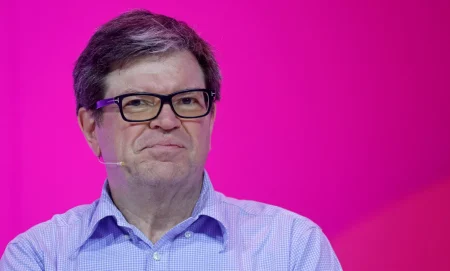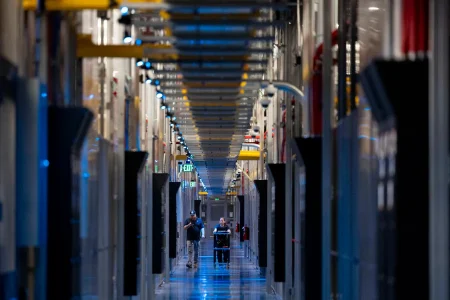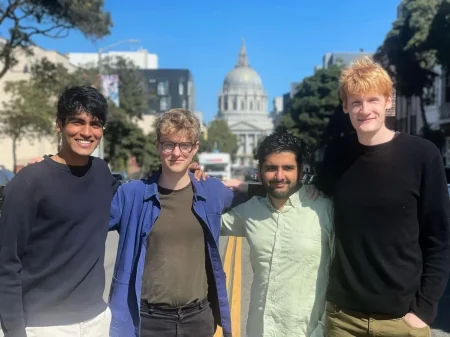The Shadow of Social Media Over the Holiday Cheer: Navigating the Digital Landscape During Festive Times
The holiday season, traditionally a time of joy, connection, and celebration, can often be overshadowed by a pervasive sense of stress and pressure. The endless to-do lists, the weight of expectations, and the constant bombardment of idealized portrayals of holiday bliss can leave many feeling overwhelmed and inadequate. Adding to this already complex emotional landscape is the ubiquitous presence of social media, a double-edged sword that can both amplify feelings of connection and exacerbate anxieties, particularly during the holidays. Experts warn that the curated perfection often presented online can trigger unhealthy comparisons and contribute to a sense of disconnect from the genuine spirit of the season.
Social media platforms, while designed to facilitate communication and connection, can inadvertently foster a breeding ground for social comparison and feelings of inadequacy. Dr. Chelsea Hansen, a doctoral lecturer in the Psychology Program at the City University of New York School of Professional Studies, emphasizes that while social media can indeed be a source of connection, it can also become a significant source of stress, especially during the holidays when the pressure to present a picture-perfect celebration is amplified. The constant stream of seemingly flawless family gatherings, extravagant gifts, and perfectly decorated homes can leave individuals feeling as if their own experiences fall short, leading to feelings of disappointment and anxiety.
Mindfulness is key to navigating the complexities of social media during the holidays. Dr. Hansen suggests taking a step back and evaluating the impact of social media on one’s emotional well-being. Asking oneself how specific platforms make one feel, and monitoring the amount of time spent scrolling and engaging, can provide valuable insights into whether social media is contributing to feelings of stress or fostering genuine connection. Recognizing the potential triggers and actively choosing to engage with content that promotes positive emotions is crucial for maintaining a healthy relationship with these platforms. The frequency and nature of engagement also play a significant role; passively scrolling through curated feeds can have a different emotional impact than actively engaging with loved ones through direct messages or thoughtful comments.
The holidays are often a time of indulgence, and this extends beyond food and festivities to encompass social media consumption. Students away from home, driven by a fear of missing out, may find themselves constantly checking in on the digital lives of their peers. Similarly, those who are unable to be with loved ones may turn to social media as a surrogate for in-person connection. While this can provide a sense of virtual togetherness, it can also paradoxically heighten feelings of loneliness and isolation, reinforcing the perception of missing out on genuine holiday experiences. Dr. Eugene Lucas, associate professor and coordinator of the distance education Psychiatric/Mental Health Nurse Practitioner program at Wilkes University, cautions that the distorted reality presented on social media platforms often fails to reflect the complexities and imperfections of everyday life.
To mitigate the potential negative impacts of social media during the holidays, establishing healthy boundaries is essential. Dr. Lucas recommends paying close attention to emotional responses while browsing social media. If certain platforms consistently trigger negative emotions, limiting exposure to those platforms and prioritizing real-world social interactions can be beneficial. Communicating these boundaries to friends and family can also be helpful, explaining the desire to prioritize authentic, in-person connections over digital interactions during the holiday season. This proactive approach can foster a more meaningful and present experience of the holidays, free from the distractions and pressures of online comparisons.
Finding the right balance between engaging with social media and prioritizing real-world experiences is crucial for maintaining well-being during the holidays. While a complete social media detox may be beneficial for some, others may find a more moderate approach more sustainable. Dr. Hansen emphasizes that there is no one-size-fits-all solution, and individuals should experiment to find the strategies that best support their individual needs. Implementing practical strategies such as allocating specific time blocks for social media use, unfollowing or muting accounts that trigger negative emotions, and designating "technology-free" times during gatherings can help create a healthier relationship with technology during the holidays. By consciously choosing when and how to engage with social media, individuals can reclaim control over their digital consumption and prioritize the meaningful connections and experiences that make the holidays truly special. Ultimately, the goal is to strike a balance that allows for connection and celebration without succumbing to the pressures and anxieties that can accompany the digital age.















